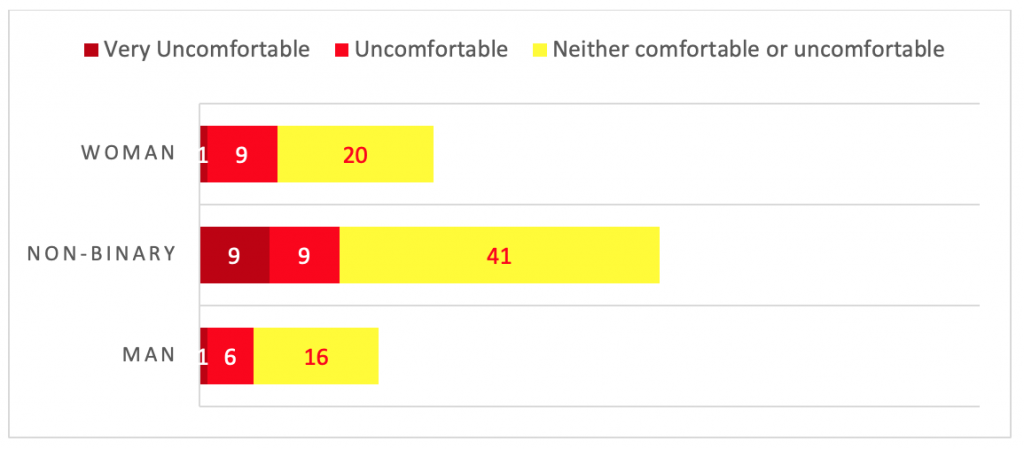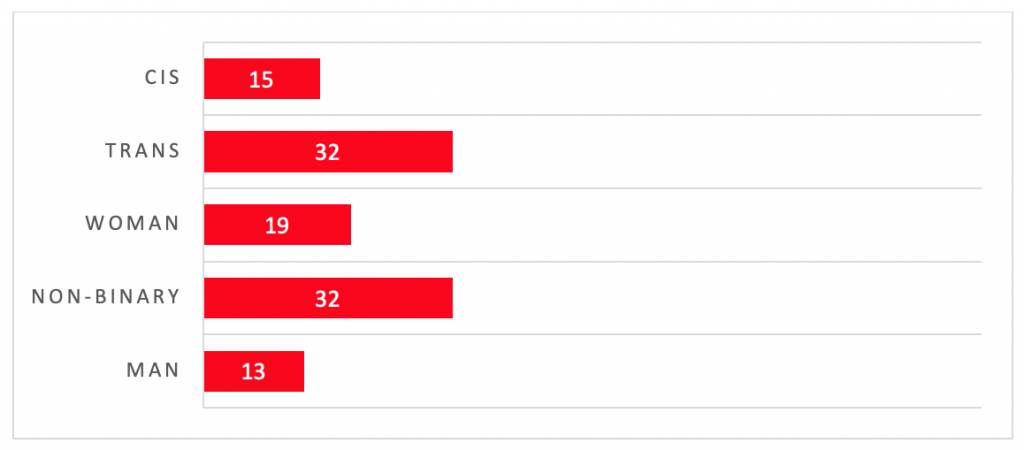Guest post by Dr Ben Britton, Dept. of Materials
Last week marked the launch of the “Exploring the Workplace for LGBT+ Physical Scientists” report, a survey of the lived experiences of 1445 UK-based LGBT+ researchers commissioned by the Royal Society of Chemistry (RSC), The Royal Astronomical Society (RAS), and the Institute of Physics (IOP). This report is a timely and important assessment of the “status quo” in the physical sciences. It provides critical data to understand the current climate that will enable us to develop evidence-based policies for creating a more inclusive culture.
Striking for me, as a cis gender* gay male working in the physical sciences, is that on the whole the climate is better than expected – but perhaps I’m the cynical type! In any case it is important to bear in mind that the LGBT+ community is heterogenous. This is reflected in the report which reveals that there are significant and substantive issues remaining, especially for women, individuals who identify as trans, and those who identify as having a non-binary gender.

As a homosexual, let me rage for a moment. My use of “better than expected” needs clarifying. I’ve been following the literature in this space, and the data in the report show that in the UK only 75% of respondents agreed to feeling broadly comfortable in their working environment, which means that one in four people are feeling “uncomfortable” or “very uncomfortable”. These statistics become especially jarring when evaluated by gender (Figure 1). The significant variance based upon gender raises an important question for all our inclusion structures (e.g.Athena SWAN action plans): do we truly consider LGBT+ individuals (and by that extension, the intersectionality of protected characteristics)?

The extent of our challenge is highlighted further when we consider the percentage of people who have experienced exclusion, intimidating, offensive, or harassing behaviour because of their gender identity or sexual identity. Figure 2 shows that one in three trans people, and one in five women have experienced this type of behaviour in the last 12 months. The report also reveals that one in four LGBT+ individuals have considered leaving their job in the last 12 months.

The report is enriched by the inclusion of testimonials from respondents to provide context around these stark statistics:
“It is deliberate that I don’t tell people about my trans history at work. I don’t want to change the way they act towards me because some people, even if they’re not actually hostile, they will treat you differently if they know that, for instance, you used to be a woman. It does change some people’s approach.”
Transgender man, gay
The RAE, RSC and IOP are to be congratulated for the tremendous hard work and tenacity that has gone into this report, and their openness to understanding the workforce. However, the report marks just the beginning of our story. It’s where we go from now and how we as individuals working in this space take the data on-board and frame our decisions and interactions.
The report makes a series of strong recommendations, many of which I would like to see implemented at Imperial, an effort I would be happy to join.
But first I need to remind everyone that it is not the duty of individual members of underrepresented groups to enact change. Those with privilege and power (i.e. allies, especially senior members in our community) need to spend their social capital to fix historic wrongs, and to create and sustain a culture of inclusion. From a personal perspective, while I have a flicker of discomfort when discussing being LGBT+ at work, and outing myself again, it is even worse when straight people act as if there is nothing to address; or they talk to me in hushed tones as if being gay is something to be ashamed of.

As a College community, we can lead this change, and reaffirm our commitment towards policies and processes, as well as opening up more positive narratives around the contributions of LGBT+ people to our day-to-day lives. One step in this direction are the rainbow lanyards many people wear; with this Imperial 600 have drawn people on board, creating a LGBT+ staff network that encompasses 30% of people who identify as straight allies. In other areas, I was pleased to find that we have a great trans staff policy, and that we continue to affirm our commitment to support members of the LGBT+ community and extend this further for students.
I’m really pleased that the IOP, RSC and RAS have done the hard work here, but these institutes only cover a small fraction of the space we engage with at Imperial. Many other institutes and fields are significantly more “stuck in their ways”. This needs to change or else we will see that great scientists, technologists, medics, mathematicians, business people, as well as our professional services staff will simply leave (as described in the report). We can only hope that other institutes collect data to ensure that this does not happen, as evidenced based policy interventions to create supportive and inclusive environments require evidence.
The timeliness of this post should be noted – July 5this the international #LGBTSTEMDay – where we celebrate LGBT+ individuals in our communities. As a college we are supporting OutThinkers at the Crick (hosted by Pride in STEM, a charity for which I serve as a trustee). It’s also timely to remember that we (Imperialand Pride in STEM too) have walking groups within the London Pride (Protest) March that straight/cis, and LGBT+, people are welcome to join.
While these are two moments that can re-enthuse our commitment to our culture, we have to remember that being LGBT+ is not just a one-day adventure filled with rainbows and glitter. For many of us, the tedium of coming out will appear again tomorrow, and the day after, and the day after that. Until we have a truly inclusive culture in STEM, many of us will continue to be harassed simply because of our inner sense of self or who we choose to have a relationship with.
Please take a moment to read the report and think about how you can do something differently.
Dr Ben Britton has previously recorded a video on “No sexuality please, we’re scientists” and can be often found on Twitter (as @bmatb).
*Cisgender or Cis: Someone whose gender identity is the same as the sex they were assigned at birth. Non-trans is also used by some people.